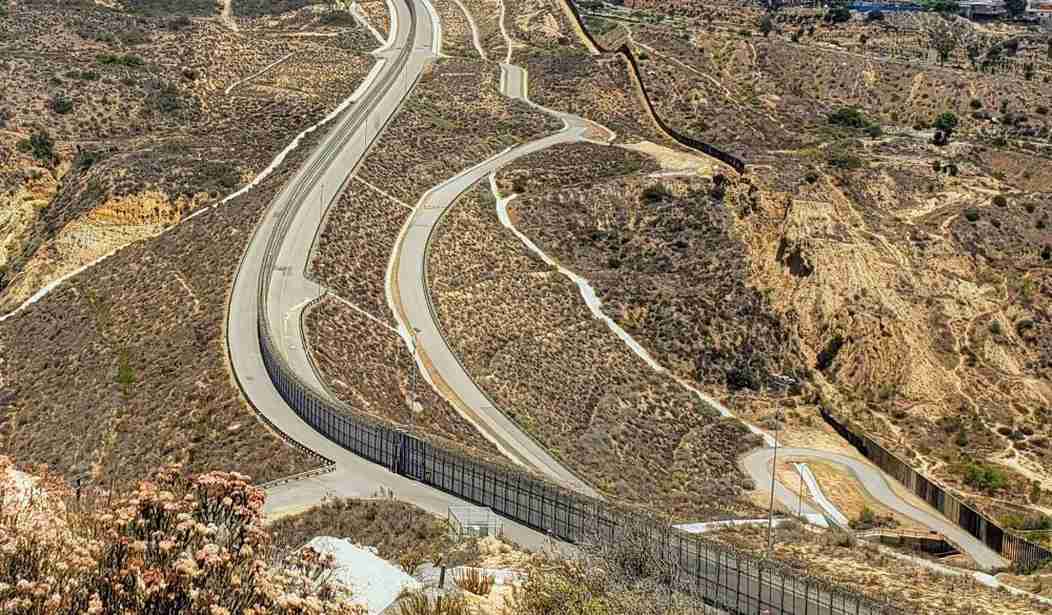On Wednesday, the House Committee on Natural Resources Subcommittee on Oversight and Investigations held a hearing on how the Biden border crisis has caused violent cartels to “infiltrate and ravage” tribal communities in the United States.
“Joe Biden’s open border policies have had detrimental effects on Indian country, with drugs and cartels infiltrating these communities at an alarming rate. As lawbreakers surge across our southern border, they often bring with them illicit substances and ties to drug cartels, leading to increased substance abuse, addiction, and violence while jeopardizing the sovereignty of these communities and further undermining the autonomy of Indigenous people,” Subcommittee Chairman Paul Gosar (R-AZ) said in a statement about the border crisis’ impact on Indigenous communities.
In the hearing, Westerman pointed out that cartels have created networks within the United States, namely, in Native American communities, to spread substances like fentanyl.
Verlon Jose, who is chairman of the Tohono O’odham Nation, spoke at the hearing. His Nation has more than 36,000 enrolled members. The area they live in encompasses some of Arizona and some of northern Mexico.
“In 1854, the international boundary between the United States and Mexico was drawn through the middle of our ancestral territory. As a result, today the Tohono O’odham Nation shares a 62-mile border with Mexico – the second-longest international border of any tribe in the United States, and the longest on the southern border,” he explained, adding that, “The Nation has long been at the forefront on border issues. Over the years we have developed a long-standing cooperative relationship with U.S. Customs and Border Protection (CBP), Immigration and Customs Enforcement (ICE) and other federal law enforcement agencies. Working in concert with CBP, our own Tohono O’odham law enforcement officers are regularly involved in drug interdiction and immigrant apprehension actions, which have been made more challenging due to international criminal cartel activity.”
Recommended
Nowadays, the Nation spends an annual average of $3 million of its own tribal funds on border security and enforcement to help meet the United States’ border security obligations.
“The Tohono O’odham Police Department (TOPD) responded to over 100,000 incidents in 2023, some of which are of a general non-border criminal nature but many of which are related to drug seizures, illegal immigration, border-related criminal activity,” he said. “The Nation's police force typically spends about half of its time on border issues, including the investigation of immigrant deaths, illegal drug seizures, and human smuggling.”
President Jeffrey Stiffarm of the Assiniboine and Gros Ventre Tribes of the Fort Belknap Indian Community explained that his reservation is located in Montana and has 7,000 members. Its police force is comprised of nine officers.
“These Drug Cartels are specifically targeting Indian Country because of a dangerous combination of rural terrain, history of addiction, under-resourced law enforcement, legal loopholes, sparsely populated communities, and exorbitant profits, and it is devastating Tribal reservations. Profits for these cartels soar the farther they get from the southern border. A fentanyl pill that costs less than $1.00 Mexico and southern states, can go for over $100 on our Reservation,” he explained.
Stiffarm later explained that members of the cartels have threatened to kill tribal members if they attempt to bring attention to the issue at U.S. Congress.
Cartels have taken advantage of @POTUS's failure to secure the border, causing drugs and crime to run rampant on our tribal lands. Now these cartels are openly threatening tribal members if they attempt to blow the whistle - take a look at this shocking witness testimony pic.twitter.com/qWlArL9EKH
— House Committee on Natural Resources (@NatResources) April 10, 2024
“I put the blame on the drug and cartel crisis squarely on the shoulders of the Federal Government…The FBI has jurisdiction over non-tribal members, our tribal officers’ hands are tied because they only have jurisdiction over tribal members. The government knew that cartels were moving onto the reservations but did nothing. The other government jurisdiction that failed us is the Border Patrol. They know Mexican or other illegal aliens are on reservations but do nothing. Our People get harassed when they cross the Border with sacred objects even though our border-crossing rights are supposed to be protected by the Jay-Treaty, yet the cartel seem to be able to go right through,” he explained.
Earlier this year, a South Dakota tribe banned Republican Gov. Kristi Noem after she spoke out about the border crisis’ impact on Native American communities.
"Due to the safety of the Oyate, effective immediately, you are hereby Banished from the homelands of the Oglala Sioux Tribe!" Tribe President Frank Star Comes Out said in February. Star claimed that some of the illegal aliens coming into the U.S. are Indigenous people “in search of jobs and a better life,” according to CBS News.
























Join the conversation as a VIP Member